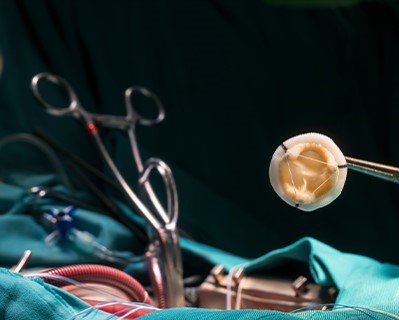Heart Valve Replacement
- Purpose: Replaces damaged or diseased heart valves to restore normal blood flow.
- Procedure: The damaged valve is removed and replaced with a mechanical or biological valve.
-
Note: The information provided here applies to elective Heart Valve Replacement procedures under standard conditions. However, specifics may vary depending on individual patient factors, such as the severity of valve disease, the presence of other heart or systemic conditions, or any complications that might arise during or after the surgery. The patient’s overall health, the type of valve replacement (mechanical or biological), and the need for additional interventions can also influence the procedure and recovery process.
Inpatient/Outpatient
Heart Valve Replacement is a major surgical procedure and is typically performed as an inpatient procedure. Patients are admitted to the hospital and remain under close observation before, during, and after the surgery. Due to the complexity of the procedure, most patients require several days in the hospital following surgery for intensive monitoring and recovery.Hospital Stay Duration
Patients undergoing Heart Valve Replacement usually stay in the hospital for 5 to 7 days. The first 24 to 48 hours are often spent in a specialized cardiac care unit (CCU) for close monitoring of heart function, blood pressure, and the new valve. The total length of stay may vary based on the patient’s overall condition, the type of valve used, and any post-operative complications that may arise.Type of Anesthesia
The procedure is performed under general anesthesia, meaning the patient will be fully unconscious during the surgery. General anesthesia ensures the patient remains still and comfortable, which is essential for the precision required in heart surgery.Travel After Procedure
Patients are generally advised to avoid travel, particularly air travel, for at least 4 to 6 weeks after Heart Valve Replacement surgery. This period allows for adequate recovery and healing, especially of the sternum (breastbone) if it was opened during surgery. Patients should follow their healthcare provider’s specific recommendations regarding travel and physical activity after surgery.Pre-procedure Preparation
Before surgery, patients are typically instructed to fast for several hours. A thorough pre-operative assessment is conducted, including blood tests, imaging studies (such as echocardiograms or CT scans), and evaluations by anesthesia and surgical teams. Medication adjustments, particularly concerning blood thinners, may be necessary to minimize the risk of bleeding during surgery.Procedure Duration
The Heart Valve Replacement procedure usually takes 3 to 5 hours, depending on the complexity of the case and whether other procedures, such as coronary artery bypass grafting (CABG), are performed simultaneously. The surgery involves removing the damaged valve and replacing it with either a mechanical or biological prosthetic valve.Recovery Time
Recovery from Heart Valve Replacement surgery can take several weeks to a few months. Patients are encouraged to engage in light activities, such as walking, soon after discharge, but full recovery, including returning to work and more strenuous activities, may take up to 12 weeks or longer. Participation in a cardiac rehabilitation program is often recommended to help regain strength and learn how to manage heart health after surgery.Estimated Cost
The cost of Heart Valve Replacement surgery can vary widely depending on the hospital, geographic location, and the specifics of the patient’s condition and valve choice. Mechanical valves often require lifelong anticoagulation therapy, which may affect long-term costs. For accurate cost information, patients should contact their healthcare provider or hospital directly.Post-procedure Care
Post-procedure care is essential for successful recovery after Heart Valve Replacement. Patients need to monitor their incision sites for signs of infection, manage pain with prescribed medications, and follow a structured rehabilitation plan. Regular follow-up appointments are crucial to monitor the function of the new valve, adjust medications, and ensure overall heart health. Patients will also receive guidance on lifestyle changes, such as diet, exercise, and medication management, to support long-term heart health and prevent future complications.

